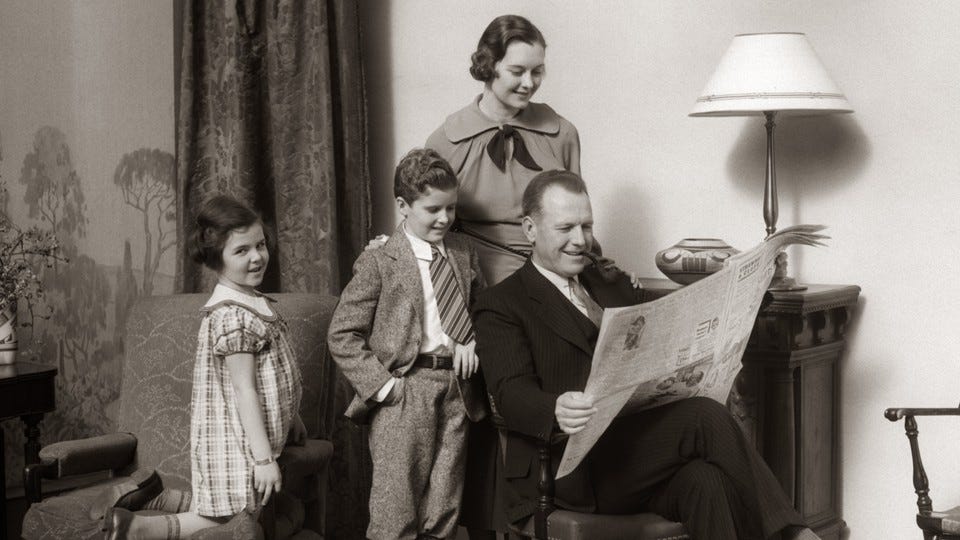Chapter 8 - Marriage is Good (and concluding remarks)
FbF Book Club: The Case Against the Sexual Revolution (Perry, 2022)
Previous Entry - People Are Not Products
One of the things that I have learned to appreciate about Louise Perry is that she is self-aware and is not a humourless scold, a trait common to self-described feminists. We can see this in how she titles the conclusion of her book “Listen To Your Mother”. This indicates a high level of self-awareness in which she understands that the resolutions she proposes are much, much more difficult to implement in real life at scale than to write down on paper.
The final chapter of this book is a defense of the traditional institution of marriage, something that will get one immeidately labeled a conservative by most, a fascist by some:
From roughly the 1960s onwards, and across the Western world, it suddenly became much easier to get divorced, and people who had been legally trapped in hellish marriages were freed from them, which was a good thing. But then came the problem of normal distribution.
Louise lays out the case that the easing of divorce laws in the West greased the slope that allowing divorce in the first place created, resulting in the collapse of the marriage of institution this past half-century. Suffice it to say that freeing women from the threat of pregnancy via The Pill had much to do with this, as did the greater role that they took on in the workforce. Women were not just sexually and economically emancipated, they were also liberated from that staid institution (and ‘patriarchal mode of control’) known as marriage.
All of us know full well that children raised in broken homes are on a back foot when they enter adulthood. There is no need to rehash the studies and the stats contained within them. What I want to focus on in this last entry is the conflict between liberating philosophies such as liberalism vs. basic human biology:
And no wonder, since the logic of individualism collapses upon contact with motherhood. The pregnant woman’s frame contains two people, neither of them truly autonomous. The unborn baby depends on the mother for survival, and the mother cannot break this physical bond except through medical intervention that will result in the baby’s death. Even after birth, the mother–baby dyad remains a unit, tied together both emotionally and physically. And, for many years following birth, the young child cannot be understood as an autonomous individual because, without the devoted care of at least one adult, death is a certainty.
and this:
And that goal was not without merit, given that women are still too often consigned permanently to the role of ‘someone’ – always caring, never cared for. But the solution to this problem cannot be individualism, because the whole concept is based on a lie. In a natural human life cycle, we begin as dependent babies, spend a very brief period as relatively independent young adults, before caring for our own dependent children, and then ultimately ending our lives in what Shakespeare called our ‘second childishness’.
But before we get into that subject, Louise does us the service of providing feminist takes on raising children that would not serve the patriarchy:




